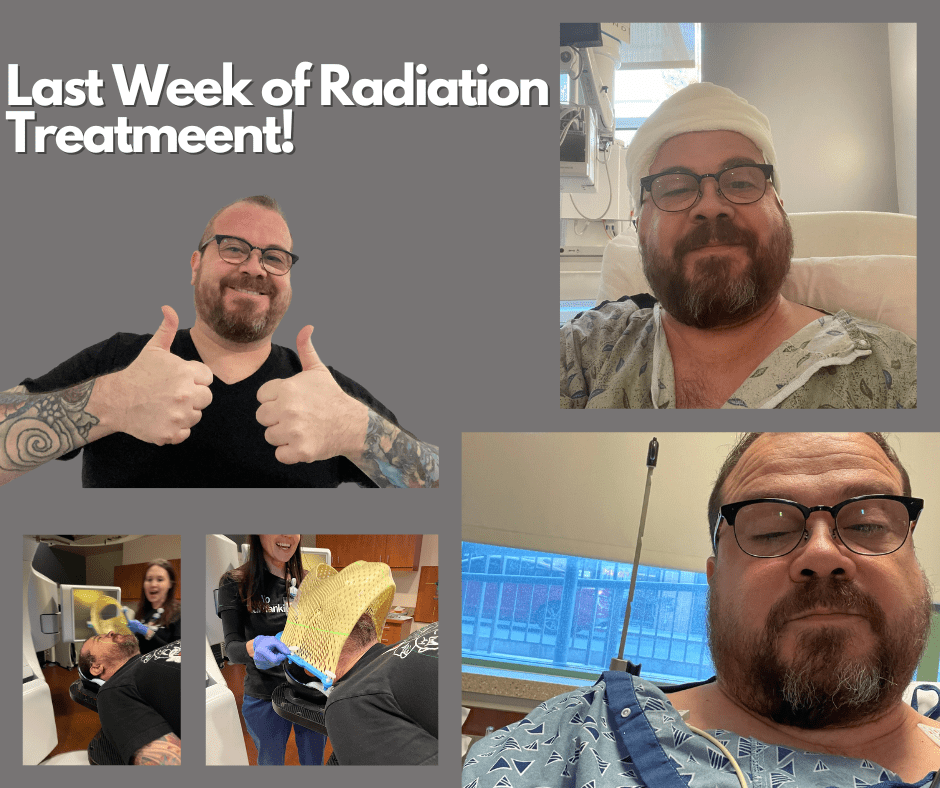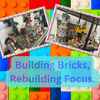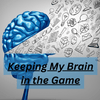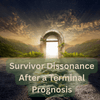Navigating the Journey: Reflections on Treatment and Optimism

Navigating the Journey: Reflections on Treatment and Optimism
Around eleven weeks ago, right after Thanksgiving, my journey truly began. A diagnosis of Glioblastoma shattered the normalcy I had once known and replaced it with hospital stays, appointments, and medical terminology I had only heard in passing. Suddenly, the word “oncologist” was no longer something I associated with other people. It was mine. My team. My reality.
The days leading up to my craniotomy were terrifying. I found myself Googling more than I should have, questioning what would come next, and grappling with the thought that something had taken root inside my brain. It felt foreign. Invasive. And I wanted it gone as quickly as possible.
Following my craniotomy and tumor resection, time seemed to blur. The hospital room became my entire world for a short while. The beeping machines, the kind nurses, the sterile smell of healing—they are all memories now, but they are vivid. I focused entirely on rest and recovery. I knew the battle was just beginning, but for a few weeks, I allowed myself to simply heal. To breathe.
Then came what oncologists term “treatment”—a deceptively simple word. The treatment plan was a blend of chemotherapy and radiation, carefully structured into two 21-day cycles. My first cycle began on January 9. I still remember the anticipation the night before. It was a mix of dread and readiness, like standing on the edge of a cliff and knowing you had no choice but to jump.
The second cycle began on January 30. I could already feel the cumulative effects of the first round by then. Fatigue crept in like a fog. My energy, once abundant, now came in small waves that I tried to ride with grace. Sometimes I succeeded. Other times, I gave in to the exhaustion and let myself rest. I had to learn to listen to my body in ways I never had before.
This week, I am approaching the conclusion of my initial radiation sessions. There is a feeling I cannot quite describe—part relief, part disbelief, and a whole lot of gratitude. Making it this far has not been easy. It has been demanding in every sense—physically, mentally, and emotionally.
People often talk about the strength of cancer patients, and I used to picture someone stoic, unshaken, almost invincible. Now I realize that strength looks nothing like that. Strength is waking up after a night of tears and facing the day anyway. Strength is showing up for radiation when your entire body wants to stay in bed. Strength is asking for help. Strength is letting yourself fall apart and putting yourself back together, piece by piece.
Emotionally, this journey has been a true rollercoaster. Some days are filled with light—small victories, kind words, good news, or just a moment of peace. Other days, I find myself crying without warning. The sadness sneaks up quietly and floods in like a wave. Sometimes I try to fight it. Sometimes I let it out and accept that tears are part of this process too.
I often wonder if the emotional ups and downs will ever even out. Will there come a time when I feel like myself again? Or is this who I am now—someone constantly balancing on the edge of joy and sorrow? I do not know. But I have learned not to fear these questions. They are part of healing, too.
Despite everything, my optimism remains steadfast. There are moments I feel broken, sure—but I never feel defeated. I remind myself daily that this is only the beginning of a long road, and while it may be rocky, I am not walking it alone. I have family, friends, an amazing medical team, and even strangers who have cheered me on without ever having met me.
There are also the small things—quiet moments that feel monumental now. A warm cup of tea, a walk outside, a song that lifts my spirit. These things matter more than they ever did before. Life has slowed down in ways I never expected, and I have found beauty in that stillness. Cancer has taken a lot, but it has also sharpened my ability to see what really matters.
The reality is that this disease tries to strip you down. It tries to make you forget who you are, to reduce you to a diagnosis. But I refuse to let it. I am not just a patient. I am a parent, a friend, a creator, and a fighter. I have passions and dreams that have not disappeared simply because my health has changed. I have a mission now—to tell this story honestly, so that others know they are not alone.
This blog is not just a space for updates. It is a space for reflection, connection, and truth. And if sharing these words helps even one person feel a little less afraid, a little less isolated, then I know it is worth every keystroke.
I also want to say this: I know that not every day will feel hopeful. Some days I may feel angry or bitter or lost. And that is okay. Healing is not linear. Grief and gratitude can coexist. Strength does not always roar. Sometimes it whispers, “Keep going.”
As I continue this journey beyond the first eleven weeks, I know that more challenges lie ahead. I will face more tests, more decisions, and more moments of vulnerability. But I will also continue to grow stronger, more self-aware, and more committed to living fully in whatever time I have.
To anyone reading this who is walking a similar path, I see you. I feel your fear, your courage, your exhaustion, and your hope. You are not alone. We are in this together.
This is only the beginning. And I am ready for whatever comes next.


 NEW ARRIVALS
NEW ARRIVALS APPAREL
APPAREL GIFT AND HOME
GIFT AND HOME COLLECTION'S
COLLECTION'S HOPE HUB
HOPE HUB BLOG
BLOG



